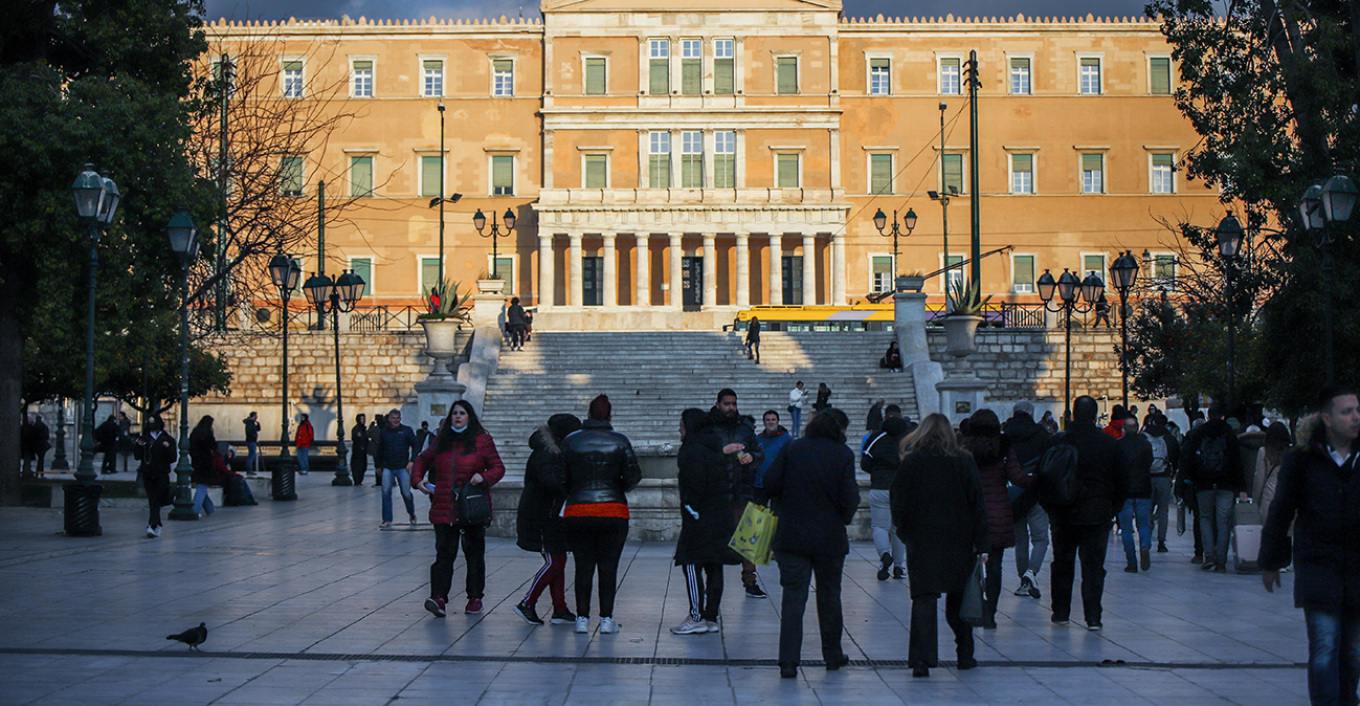A large majority of Greeks are mistrustful of key institutions in the country, according to the findings carried out by Eteron – Institute for Research and Social Change, headed by the former Government Representative of the SYRIZA government, Gavriel Sakellaridis.
The respondents said they were disillusioned with their financial situation and were pessimistic regarding their economic state. Some of the key findings of the study include:
· All the main institutions that make up the Greek political system have low levels of trust. It even touches on more “neutral” institutions, such as the judiciary (they trust it little or not at all: 69%), the Presidency of the Republic (63.7%), and the Independent Authorities (65.1%) or institutions that are inherently pluralistic, such as the Parliament (68.9%).
· Parliamentary democracy has very high approval ratings as 83% of citizens agree that it is the best form of government (with 13.3% disagreeing). The highest percentages of adoption of this point of view come from the voters of ND (94%), PASOK (94%), SYRIZA (88.4%), and MeRA25 (87.3%). The lowest is among the voters of the Hellenic Solution (67.7%), the KKE (62.1%), and the National Party-Greeks (54.8%).
· Dissatisfaction with the way the current Hellenic Republic operates is also very high. Only a minority (29.9%) is satisfied with the way democracy actually works in Greece (69.7% express dissatisfaction).
· 78.6% of respondents believe that democracy would be better “if citizens participated more through popular assemblies and referendums”.
· A quasi-“anti-democratic” core exceeding 10% is distinct within the Greek political system. Its focus is placed on the extreme right of the political spectrum.
· The great majority of the Greek population remains pro-European. About two out of three voters (64.9%) consider that the overall value of Greece’s participation in the E.U. is positive, while 32% evaluate the country’s participation in the European project negatively.
· 69.4% are in favor of staying in the euro, 20.9% are in favor of returning to the drachma and 9.7% do not express an opinion.
· The opinion of returning to the drachma constitutes a majority trend only among the voters of the Hellenic Solution (71.4%) and the National Party – Greeks (57.8%).
· With regard to economic policies, 64.5% of respondents believe that the state should intervene more in the Greek economy and only 26.9% believe that private enterprises are the main way to create better conditions for economic development.
· 62.7% of respondents believe that defence spending should be reduced and focus more on areas such as health, education, and social security.
· 27.4% of citizens believe that defence spending should be increased to better protect national integrity.
· The ideological center of gravity of Greek society is placed in the broader Center Left/Left.
· The majority of citizens consider that the conventional dividing line between the Left and the Right does not correspond to today’s times.
· However, the division of Left and Right significantly structures the economic preferences and cultural choices of the population. It does not, however, form two “factions” (ideologically defined, not partisan) internally coherent and with distinct identities.
· The followers of the Hellenic Solution and the National Party-Greeks differentiate themselves from all the parties, placing themselves, and with great clarity, outside the Right-Left division.
· The ND party is ideologically pluralistic. It is the par excellence “party of Europe” (together with PASOK) in the Greek political scene. It is also the preeminent party of the financially “satisfied” in the Greek political system – a fact that reduces its social versatility. It represents, always according to the views of its current voters, the main expression of neo-liberal ideas in the country, an expression combined with strong elements of cultural conservatism.
· Corresponding, albeit of a smaller scope, ideological diversity characterises the electorate of SYRIZA. Within it, the financially satisfied group is significantly underrepresented, while the financially dissatisfied group dominates, to a surprising extent.
· SYRIZA constitutes, both ideologically and sociologically, a classic left-wing multi-collective profile, with particularly limited, for a large government-leaning party, penetration among the most affluent groups of the population. It is also impressive for a government-oriented party, the strong support of its voters in matters of cultural liberalism.
· The standard that characterises the set of answers related to the issues of cultural liberalism/conservatism allows the classification of the voters of the parties in an imaginary horizontal axis of cultural liberalism – conservatism according to the following order: MERA25, SYRIZA, KKE, PASOK, ND, Greek Solution, National Party-Greeks.
Ask me anything
Explore related questions





